Nancy Lilly (@lyh2o) is the stormwater outreach coordinator for Lynchburg Water Resources in Lynchburg, Virginia.
By now, we’re all tired of virtual meetings and endless Zoom calls. However, there are some Zoom calls that I still covet: the ones with the lovely folks at Stroud Water Research Center.
Over the summer, all the stars lined up to make one perfect program: an EnviroDIY camp for high school students in Lynchburg, Virginia.
Staff from Lynchburg Water Resources, the Stroud Center’s Education Department, and Vector Space worked for months preparing and ordering supplies and tinkering with DIY electronics. The goal was to create a camp focused on giving students the skills to build and install four EnviroDIY Monitoring Stations around our local Blackwater Creek Watershed.
The project made news headlines in the Lynchburg News & Advance.
Once the camp was underway, students studied different water quality parameters, drawing on information they learned in past studies as well as new and complex problems presented by an increase in the frequency and intensity of rain events. We also took a trip to our water resources recovery facility to see a lab that monitors water 24/7/365.
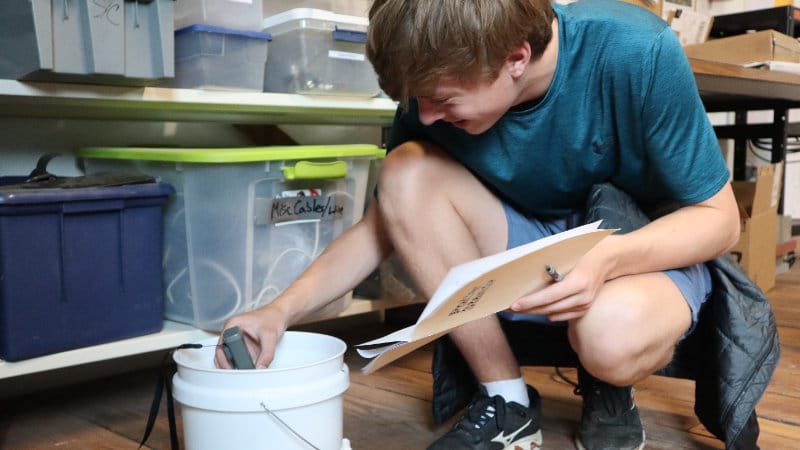
The students settled into the homemade computer lab to learn about Arduino coding and program the stations under the careful tutelage of Adam Spontarelli, the executive director of Vector Space, the local non-profit organization that hosted the camp.
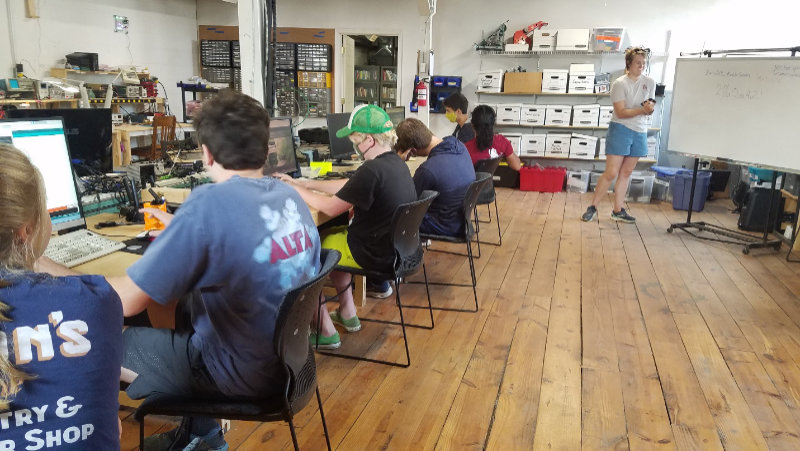
We then scouted out the best places to locate the stations. There were some challenging parameters for these, including ease of accessibility, a location that is public but will not draw too much attention, and of course, proximity to the stream.
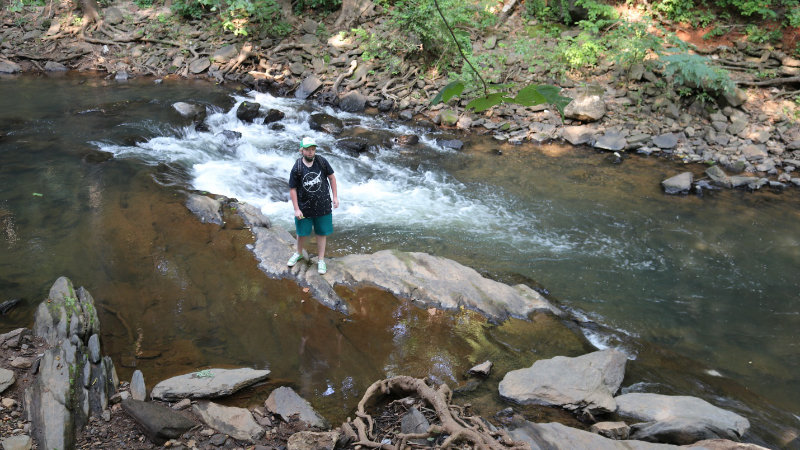
The students then designed and built their station mounts. They drilled holes, cut wood, welded sensor mounts, and cut solar panel mounts out of sheet metal. This part of the camp was one of their favorites because many of them had little or no previous experience using power tools.
On the final steamy day, two groups departed for different parts of Lynchburg to dig their holes and install their stations.
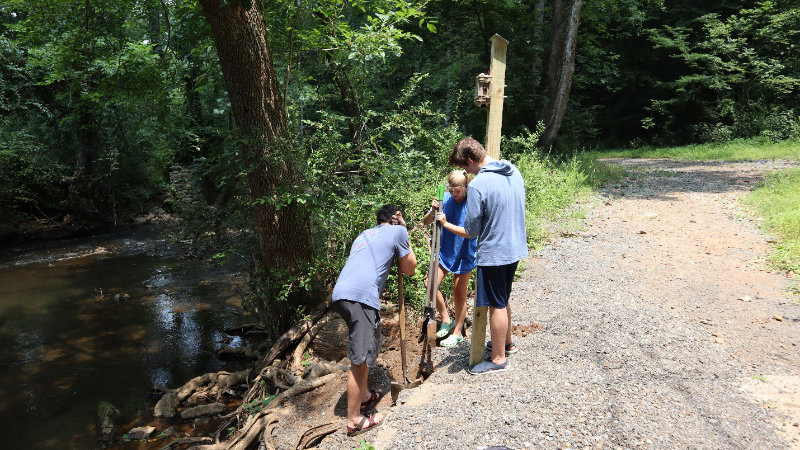
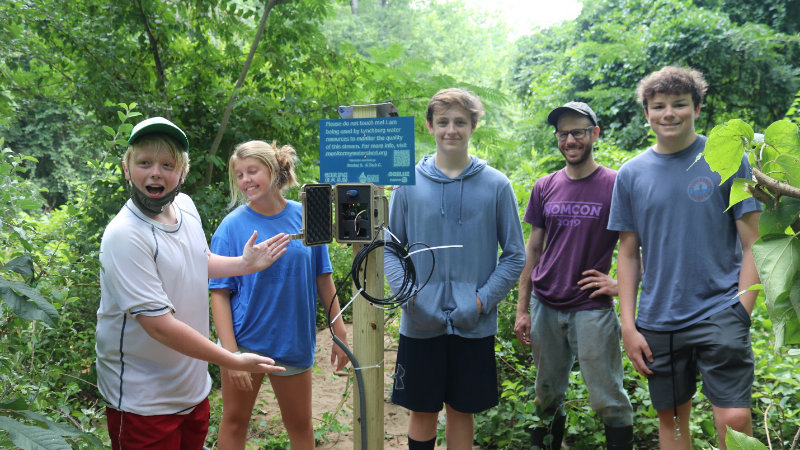
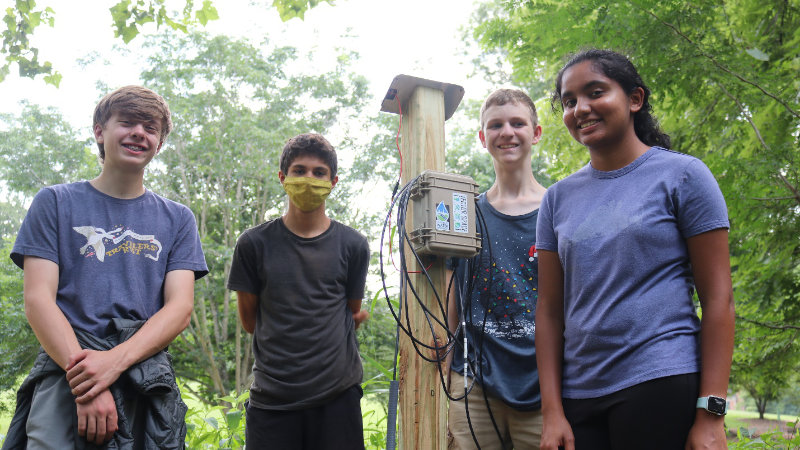
Overall, it was one of the best projects I have had the great fortune to work on this year. The participants were excited to learn and participate, and we completed our self-assigned task. Best of all, we hit the sweet spot during this pandemic where we could be in person doing hands-on learning.
This unique partnership would not have been possible without the hard work and virtual help from the Stroud Center and the willing dedication from Vector Space.
This #WaterWondersWednesday video with the #WaterLillys is all about our water quality monitoring stations that this summer’s middle and high school Vector Space campers put together!
Interested in building your own EnviroDIY Monitoring Station? We have a detailed manual and video tutorials to walk you through the process, and a dedicated forum where you can ask and answer questions.

 Welcome to EnviroDIY, a community for do-it-yourself environmental science and monitoring. EnviroDIY is part of
Welcome to EnviroDIY, a community for do-it-yourself environmental science and monitoring. EnviroDIY is part of